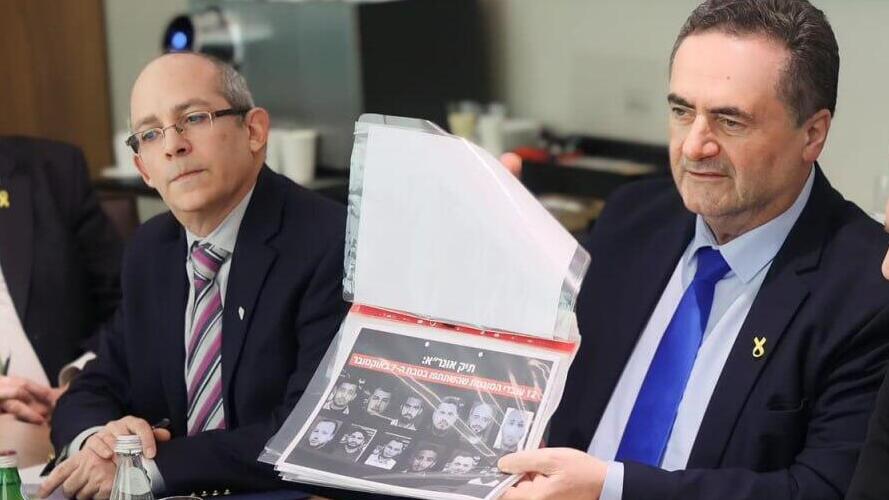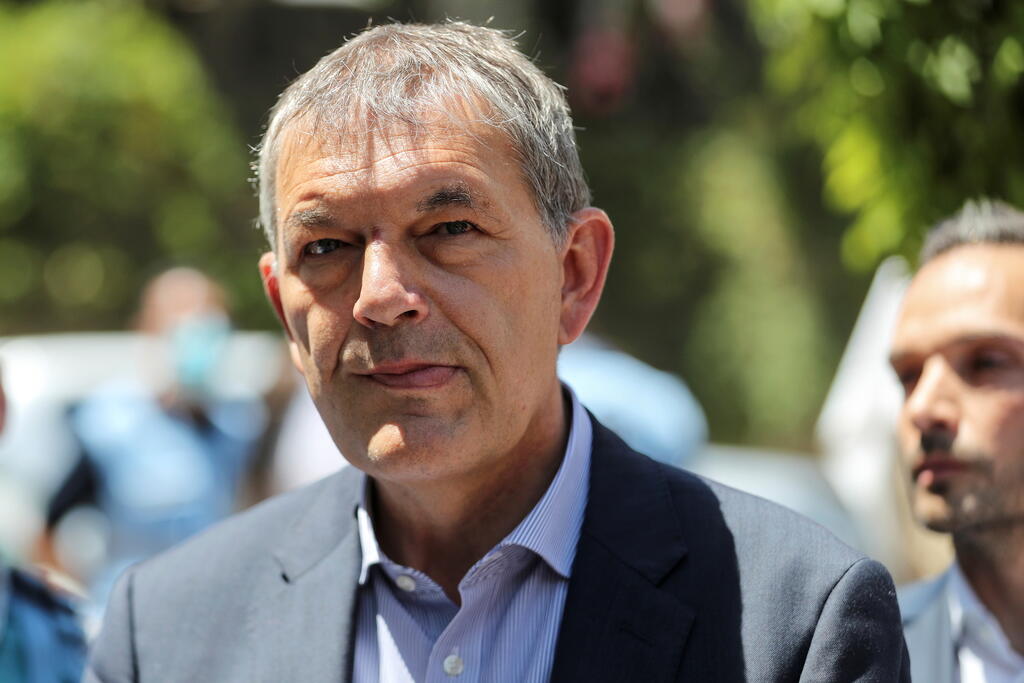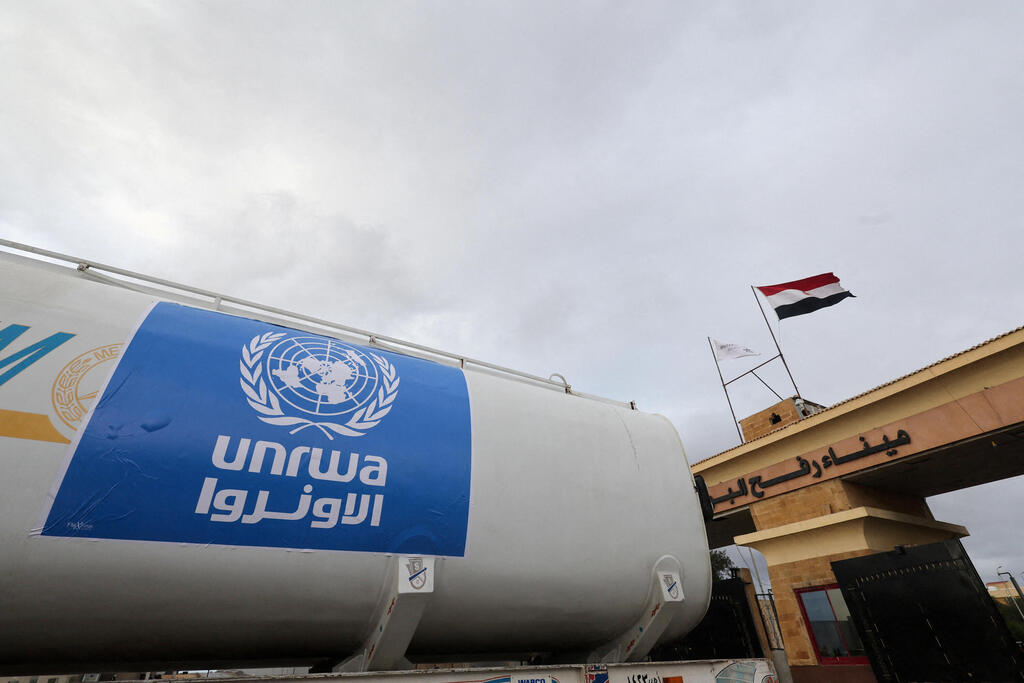reports of 12 UNRWA officials’ involvement in the October 7 massacre. Years of familiarity with the agency have established the understanding that it often provides auspices for terror activity, and is a major perpetuator of animosity and a sense of vengeance against Israel in Palestinian collective awareness.
Read more:
The recent revelation was preceded by the Chairman of the UNRWA Staff Union’s election as a member of Hamas’ political bureau (2017), UNRWA employees’ mass engagement in all Hamas divisions and the recurring utilization of the agency’s facilities for military uses.
3 View gallery


Foreign Minister Israel Katz presenting evidence of UNRWA officials' involvement in the October 7 massacre
(Photo: GPO)
Western countries’ announcement that they were halting UNRWA funding, without which the agency cannot function, is a significant development. It reflects the realization that has been gradually dawning upon the West for some time, and more so following the war in Gaza, whereby the term “international community” - at the center of which lies the UN - serves as a cynical front for dark forces that, while manipulatively waving the banner of liberty, truth and ethics, also rely on oppression and war crimes.
Under the same auspices, Iran chairs the UN Human Rights Council Social Forum, Syria accuses Israel of genocide and Russia points out the world’s double standard. No wonder that a recent Wall Street Journal op-ed (January 26) was entitled “The U.N.’s war on Israel”.
From the Palestinian perspective, the announcement made by the Western states, and the UN’s statement whereby employees who were involved in the massacre have been suspended, are a considerable blow.
The pain Palestinians feel does not only emanate from the expected decline in essential civic aid offered to the 66% of Gazans who are considered refugees but also from the negative impact on the longstanding Palestinian collective narrative supported by the very establishment and actions of UNRWA, whereby the Palestinians have been historically wronged and the international community is therefore eternally obligated to take care of them.
The current war has already established itself as a dramatic crossroad in the history of the Israeli-Palestinian conflict. It has made Israelis reexamine many former paradigms, such as the Palestinians’ goals and behavior patterns. It will require a change in perception and, above all, in policy, including concerning UNRWA. The agency’s dissolution is needed not only to eliminate security threats, particularly in Gaza but to start promoting changes in perception among the Palestinians that would, perhaps, enable stable coexistence in the future.
Concretely, Israel should promote the merging of UNRWA - which has provided services solely to Palestinians since its establishment in 1949 - with the UN Refugee Agency (UNHCR), and limit the aid eligibility currently provided to generations of 1948 Palestinians, even if they no longer live in refugee camps or have settled down permanently across the globe. The limiting or dissolution of UNRWA’s education systems must also be explored, as they have often served as incubators for extremism and incitement.
 Dr. Michael Milshtein
Dr. Michael MilshteinTo further this goal, Israel must formulate an organized plan consisting of steps designed to convince the international community - including the Arab world - of the justness of this cause while suggesting how to provide the large Palestinian population that depends on UNRWA with the civic aid it requires in the absence of this UN agency.
This effort would naturally focus on the Gaza Strip, however, implementing it in the agency’s four other areas of interest - the West Bank (including East Jerusalem), Jordan with its large Palestinian population, Lebanon, and Syria - is of the essence.
This goal will not be attained unless Israel presents the overall long-term strategy on the issue of the Palestinians that all Israeli governments have avoided forming for several decades. To earn the attention and legitimacy for the dramatic steps it is seeking to take, Israel must engage in a poignant discussion on the “day after” that would not only be limited to the Gaza Strip but touch upon its broader relations with the Palestinians.
- Dr. Michael Milshtein is the head of the Forum for Palestinian Studies at the Dayan Center of Tel Aviv University





